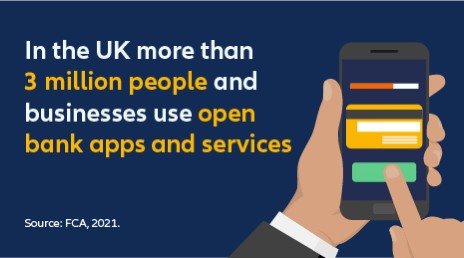How is the insurance industry embracing social media?
There’s a lot of development going on around the use of social media in the insurance industry but it’s fair to say it lags behind other industries. Some of the direct insurers have built strong social media presences but in the broker market in particular, there is still room for improvement. The reluctance to use social media is exacerbated by concerns about compliance and regulatory and reputational risk.
Thankfully this is beginning to change, which is brilliant as social media can be a powerful tool in both markets.
In the B2C market, social media is a great way to deliver customer service. Customers love the fact that they can get an instant response - it makes them feel like they’re getting more for their money.
It can also enhance the insurer’s brand, giving it more personality and making it appear more human. Social media also enables an insurer to create additional touchpoints with its customers. This can build loyalty.
In the B2B market, it can be used to build brand. In an industry where relationships are key, this additional conversational tool can help to strengthen those associations. By putting out engaging content and thought leadership pieces, an insurer can be seen as an expert and a valued business partner. This can build leads as well as helping to strengthen existing relationships.
What is Allianz doing?
Allianz is active in both areas. Through Petplan and its musical instrument insurance, it uses Facebook and Instagram to connect with its customers. Posts can include tips on looking after your pets or information about shows or music - anything that might be of interest to customers.
In the commercial space, activity tends to focus around Twitter and LinkedIn as these are seen as more professional platforms. We do run some adverts on Facebook but this has a much more limited business benefit.
It is a relatively new venture for this part of the business but one we’re really pleased with. At the beginning of 2019, we introduced a new social strategy which put social media as an integral part of our marketing mix and this has backing from our general manager, Simon McGinn who wanted to make Allianz more digital and tech-focused. As a result, he and some of the other senior leaders started tweeting about what they were doing as part of their day to day jobs.
Although these were only small steps, before long we started to see a benefit to our brand from reaching out to brokers and customers in this way. It’s also given our senior leaders another way to communicate and, as it comes from them in their personal capacity, it’s helping to create more of a personality for Allianz. They enjoy it now and I barely need to nudge them to tweet anymore.
Should brokers be using social media?
Definitely. It can be a powerful tool for building brand and connecting with existing and potential customers. It makes your business more personal and encourages people to connect with you.It also offers great opportunities for advertising. An advert on social media is cheaper and more targeted, making it an effective way to reach potential customers. Your customers are already using social media daily, so why not go where they are.
And, with Whatsapp announcing that it will start to allow advertising in 2020, it’s something that will only grow.
And what about SMEs? Should the be using social media?
Many are already using it well, recognising it as a powerful marketing tool and fundamental part of their brand identity. For your typical SME, there’s no distinction between personal and business social media: they are their business. For instance, a florist would follow other florists, customers and leaders in their business area. They’re part of a community, all with this shared passion.
Brokers looking to make a start with social media would do well to look at how some of their SME customers do it.
Ok, I don't use social media now. How do I get started?
I’d recommend opening a Twitter or LinkedIn account and having a look at what your peers are doing. Connect with others on LinkedIn, like and retweet people’s tweets and comment on posts. You don’t have to have loads of opinions, just make sure you’re part of the conversation.
You can also generate your own content, linking to relevant items you see or creating your own. All these activities will help you get your name and brand out there.
It’s also worth having a look at how businesses that are good at social media do it. One company that really uses social media to its advantage is Innocent Smoothies. It’s able to talk to its customers as if they were its friends.
Replicating this tone is unlikely to work for most broker businesses but it’s worth finding a social media voice you’re happy with – ideally something that feels human and will encourage others to interact with you. Nick Hobbs, our director of broker markets, is a great example. His Twitter is very much in the same tone of voice as when he’s talking to you face to face. It works really well.
What are the
risks?
risks?
There are risks with social media. It’s instant and, even if you delete it, what you say is out there forever. On top of that, as your posts can be shared over and over again, any reputational damage can spread quickly and far beyond your customer base.
These risks do put people off getting involved but a spot of common sense will ensure you don’t rubbish your reputation in 280 characters. Always be careful with what you’re saying and ensure it’s relevant to your brand and business. As everything is a representation of your business’s identity, think before you tweet or post.
It’s not all over if things do go a little awry. There are plenty of examples of companies that have turned a bad customer experience around by dealing with it quickly and efficiently. Good, old-fashioned PR and crisis management skills are just as relevant on social media.
How will the insurance industry's use of social media affect insurance policies?
Over the next few years, social media is going to have a huge influence on the way insurance is bought and sold. In the consumer space, it’s already changing the way that people interact with insurance companies and I expect it will become another sales channel fairly soon.
The commercial space will go down the same route too, albeit it more slowly due to the complexity of products. That said, SMEs are able to buy more products online than a few years ago so it won’t be long before social media is another sales channel for them too.
The way that social media creates more touchpoints with customers will also influence product design. It’s a great channel for providing risk management advice and tips, helping policyholders reduce the likelihood of a claim. Policies will start to become more of a risk management service with the reassurance of a financial safety net if the unexpected does
happen.
Can't I just ignore it? Surely my business can exist without social media.
You can but that’s a very dangerous strategy. Social media is rapidly becoming a huge part of the way the insurance market works. People spend on average a couple of hours of day on social media. It’s where they get their news; chat to friends and family; and research everything from holidays to home insurance.
Given that it’s free and easy to use social media, it should be a business priority.
































